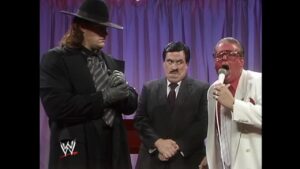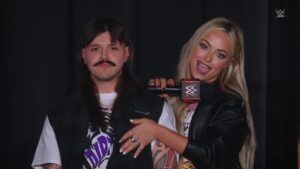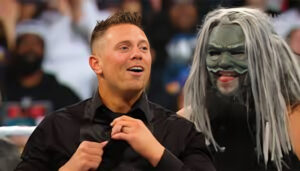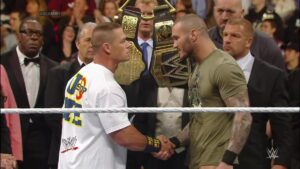He’s now revered as one of the greatest wrestling personalities to ever step in the ring, but it was on this date, June 17, 1985, thirty-five years ago, that “Macho Man” Randy Savage was introduced to the wrestling world on a national platform, when he made his World Wrestling Federation (WWF) debut at a WWF show in Poughkeepsie, New York, defeating Aldo Marino (Marino was better known for his time in the NWA and CMLL as Ricky Santana). The match was filmed for WWF Championship Wrestling and was originally aired on July 6, 1985.
Randy Savage: Before the WWF

Randy Poffo, the Man Who Would Become Macho, originally dreamed of being a pro baseball player, being signed by the St. Louis Cardinals right out of high school. He was assigned to the Gulf Coast League (GCL) Cardinals farm team in the Rookie League where he spent the 1971 and 1972 season, rotating from catcher to outfield. In 1973, he moved up to Single-A ball with the Orangeburg Cardinals, but in 1974 headed to the Cincinnati Reds farm system with Tampa Tarpons. In his four seasons of baseball, he had a career batting average of .254, and 16 home runs in 289 games played (1,014 plate appearances).

In 1973, during the winter season, he began to work as a pro wrestler to supplement his income, but after the 1974 baseball season, Poffo decided his future was probably better suited in pro wrestling rather than baseball, officially entering the family business and retiring from baseball – his father, Angelo Poffo, had been a wrestling star in various National Wrestling Alliance (NWA) territories beginning in the late 1940s, while his brother Lanny Poffo has also entered the business.

Originally a masked wrestler called The Spider (based off of Spider-Man), before wrestling under his real name. Randy Poffo would spend the mid-1970s toiling away in NWA territories like Championship Wrestling From Florida, Georgia Championship Wrestling, Mid-Atlantic Championship Wrestling, and Alabama’s Gulf Coast Championship Wrestling. It was in the latter that he won his first gold, teaming with his brother in The Poffos and winning the NWA Gulf Coast Tag Team titles in 1976.

But Randy was tired of being in the shadow of his father’s name, as it seemed to be more of a hindrance around the old school wrestlers and promoters than a help. “These guys saw me as some skinny guy who just came out of baseball, and at that time baseball players weren’t supposed to lift weights,” Savage recalled to IGN in 2004. “So they just saw me as some kid trying to make it off of my dad’s name. That’s why I changed my name to Macho Man Randy Savage, just to shut those people up.” So after a conversation with Georgia promoter Ole Anderson, who told Randy that Poffo wasn’t a good name for some who “wrestled like a savage”. Randy became Randy Savage and added “Macho Man” to his ring name long before the Village People struck the charts with 1979’s song of the same name. “The truth behind that is my mom was reading Reader’s Digest one day, long before the Macho Man song came out,” he told IGN in 2004. “And they said in this article that Macho Man was going to be the next hot term.” His name change seemed to work because he started getting noticed in the singles game, becoming a 3x NWA Mid-America Heavyweight Champion in the Nashville, Tennessee area, with his first win in early 1978.
While Randy Savage may have been excited about his newfound opportunities, there was one man who was not – his father, Angelo Poffo. Frustrated at the lack of big-time opportunities for both his sons, the senior Poffo founded International Championship Wrestling (ICW) in Lexington, Kentucky in 1978, with Savage winning the ICW Heavyweight Championship on three occasions. Savage began to grow into a big star in the Southern states like Kentucky and Tennessee. It was working in ICW that he would meet the love of his life, Elizabeth Hulette, who worked as an on-screen host under the Liz Hulette. The pair would begin dating during their time together in ICW.
Sadly, by 1984, iCW had lost the war for the territory to Jerry Jarrett and Jerry Lawler‘s Memphis-based Continental Wrestling Association (CWA) and the company folded. Jarrett and Lawler bought the assets of ICW and merged them into the CWA, launching an ICW invasion angle that brought both Savage and Lanny Poffo into Memphis. He immediately began feuding with Lawler, the territory’s biggest star. The Poffos were also used heavily as a tag team in CWA, with Savage and Lanny feuding with the likes of the Rock N’ Roll Express (Robert Gibson & Ricky Morton), Jerry Lawler & Jimmy Valiant, and the father-son tandem of Tommy & Eddie Gilbert. During his time in CWA, he would become a 2x AWA Southern Heavyweight Champion and was a member of one of the first major factions in Jimmy Hart‘s First Family, a unit that featured the likes of future legends like Rick Rude, King Kong Bundy, Iron Sheik, Jim Neidhart, and more. On June 6, 1985, Randy Savage lost to Jerry Lawler in a “Loser Leaves Town” match, ending his career in Memphis. But while his time in Memphis was over, his rise into the mainstream zeitgeist was just about to start.
Less than two weeks later, Randy Savage walked into a WWF run arena in Poughkeepsie, New York to make his debut for Vince McMahon, just months removed from the colossal attraction that was the first WrestleMania. From there it was nowhere to go but up. He would win the WWF Intercontinental Championship in February of 1986, only seven months into his WWF run, and he and his manager, Miss Elizabeth (the same Elizabeth from ICW) were household names. By 1988 he was WWF World Heavyweight Champion, and by the time he departed the WWF in 1994, he had won it a second time as well (in 1992) and etched in history arguably the Greatest Match in WrestleMania history with his classic against Ricky Steamboat at WrestleMania III.
In 1994, WWF had thought Savage was past his prime. After all, he was 32 when he debuted in 1985 and was now into his 40s. But Savage would head to rival World Championship Wrestling (WCW) and continue for another six years, becoming a 4x WCW World Heavyweight Champion and becoming a staple of the New World Order (nWo). Following WCW’s demise in early 2001, Savage left pro wrestling – briefly returning for a very short stint in TNA/IMPACT Wrestling in 2004. His final match was a 6-man tag match at TNA Turning Point in December, where he teamed with Jeff Hardy & AJ Styles to defeat Jeff Jarrett, Kevin Nash & Scott Hall.
https://www.youtube.com/watch?v=DSJHECDtwx4
But when pressed by IGN to mention the absolute defining moment of Randy Savage’s career, his reply came easy. “June 17, 1985 when Vince McMahon came to me,” he said. “Before that I was running around crazy and Vince wanted to know if I wanted to do business. That’s the day Vince McMahon guaranteed me an opportunity, a shot that if I did well, he would give me my chance at wrestling in the main events, and he was true to his word. I got lucky that the people identified with me, my style, my rebel style, my Slim Jim. That’s what they like about me. But Vince McMahon gave me my opportunity June 17, 1985, and I appreciate that forever.”
Stay tuned to the Last Word on Pro Wrestling for more on this and other stories from around the world of wrestling, as they develop. You can always count on LWOPW to be on top of the major news in the wrestling world, as well as to provide you with analysis, previews, videos, interviews, and editorials on the wrestling world. Watch WWE programming with Raw on Monday (USA Network, 8pm EST), NXT on Wednesday (USA Network, 8pm EST), and SmackDown on Friday (FOX, 8pm EST). You can check out an almost unlimited array of WWE and NXT content on the WWE Network.






